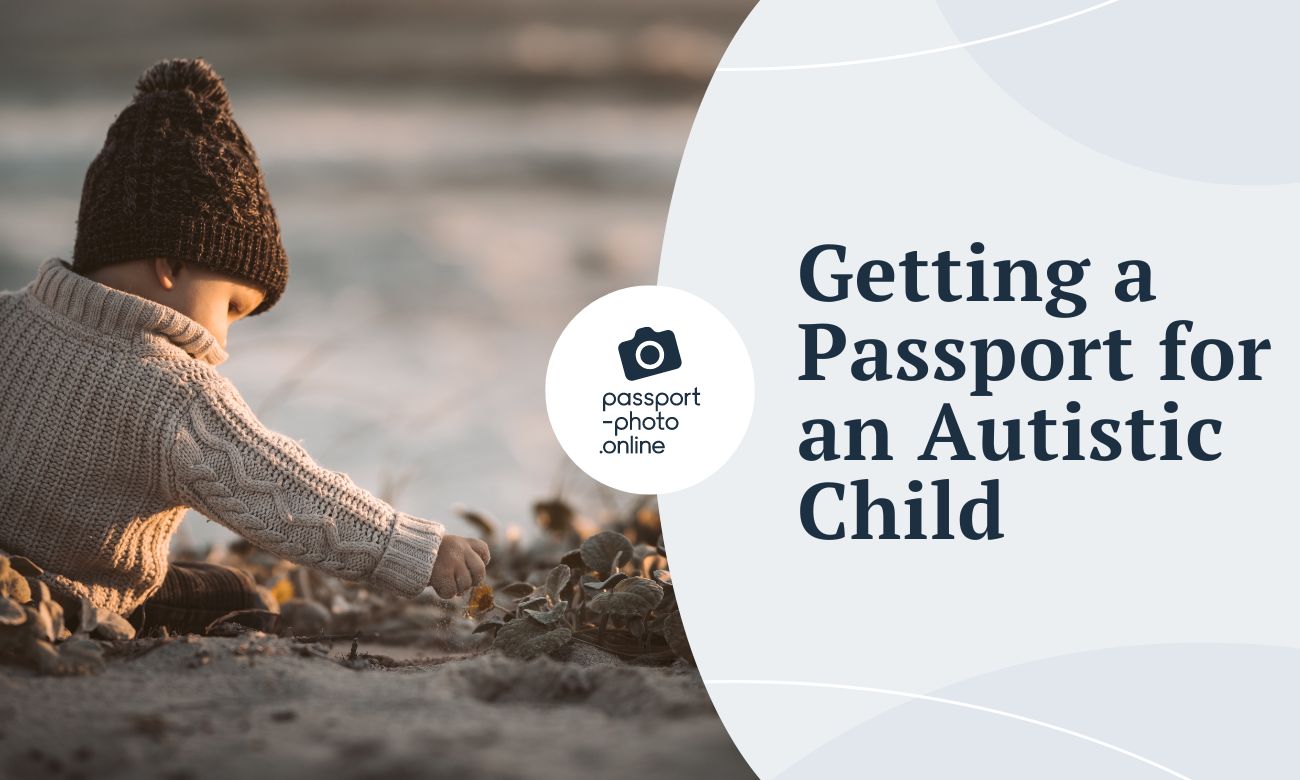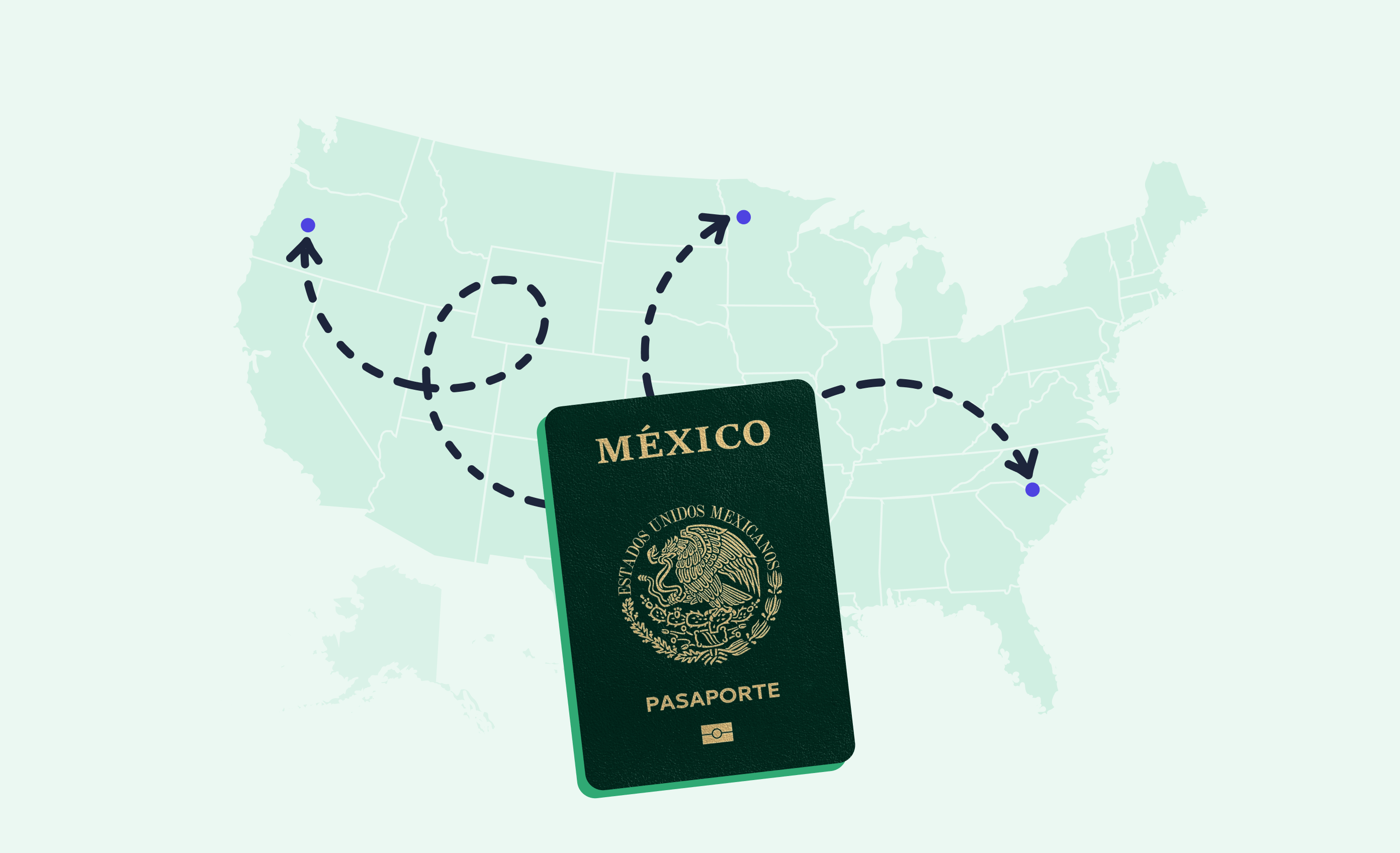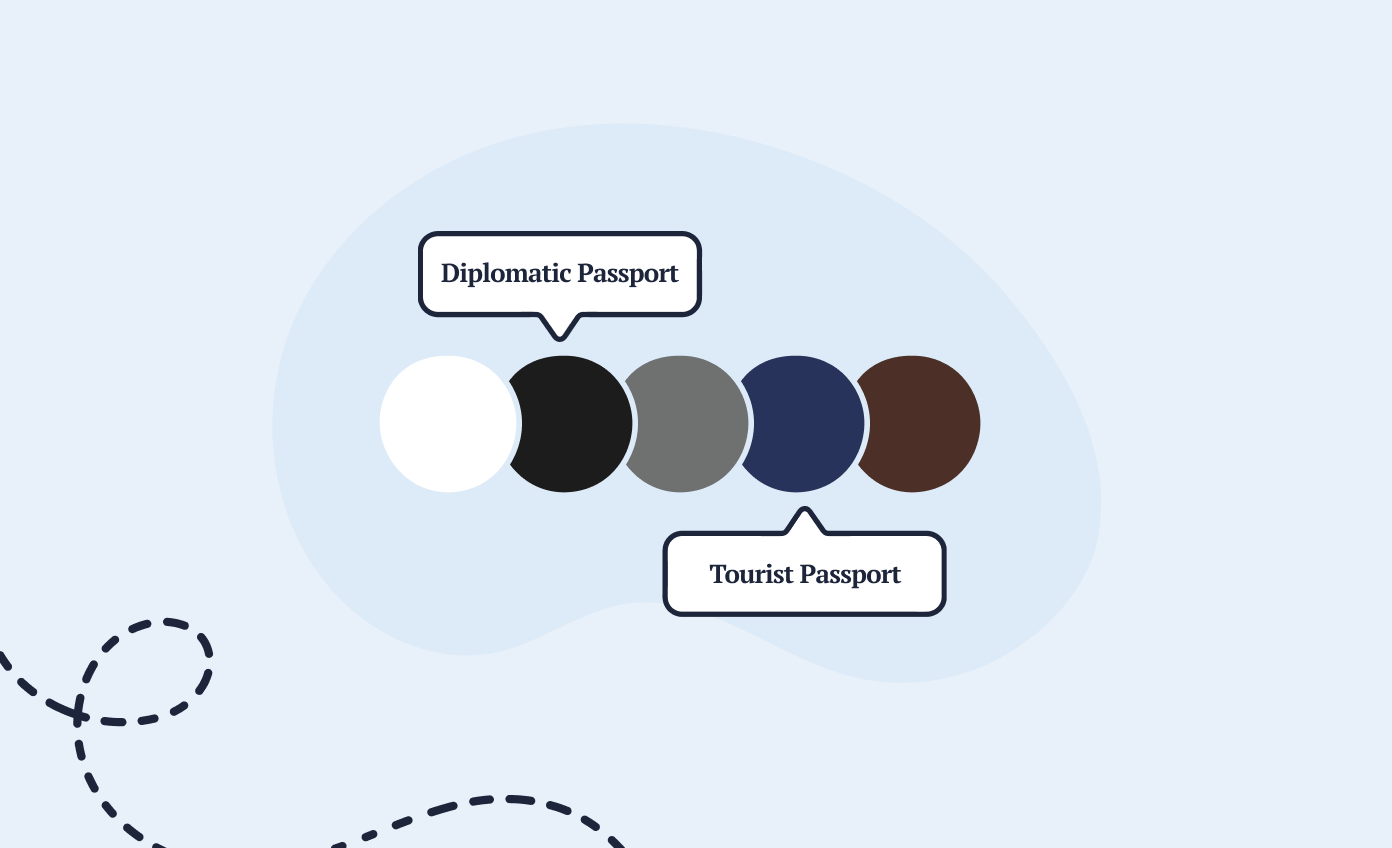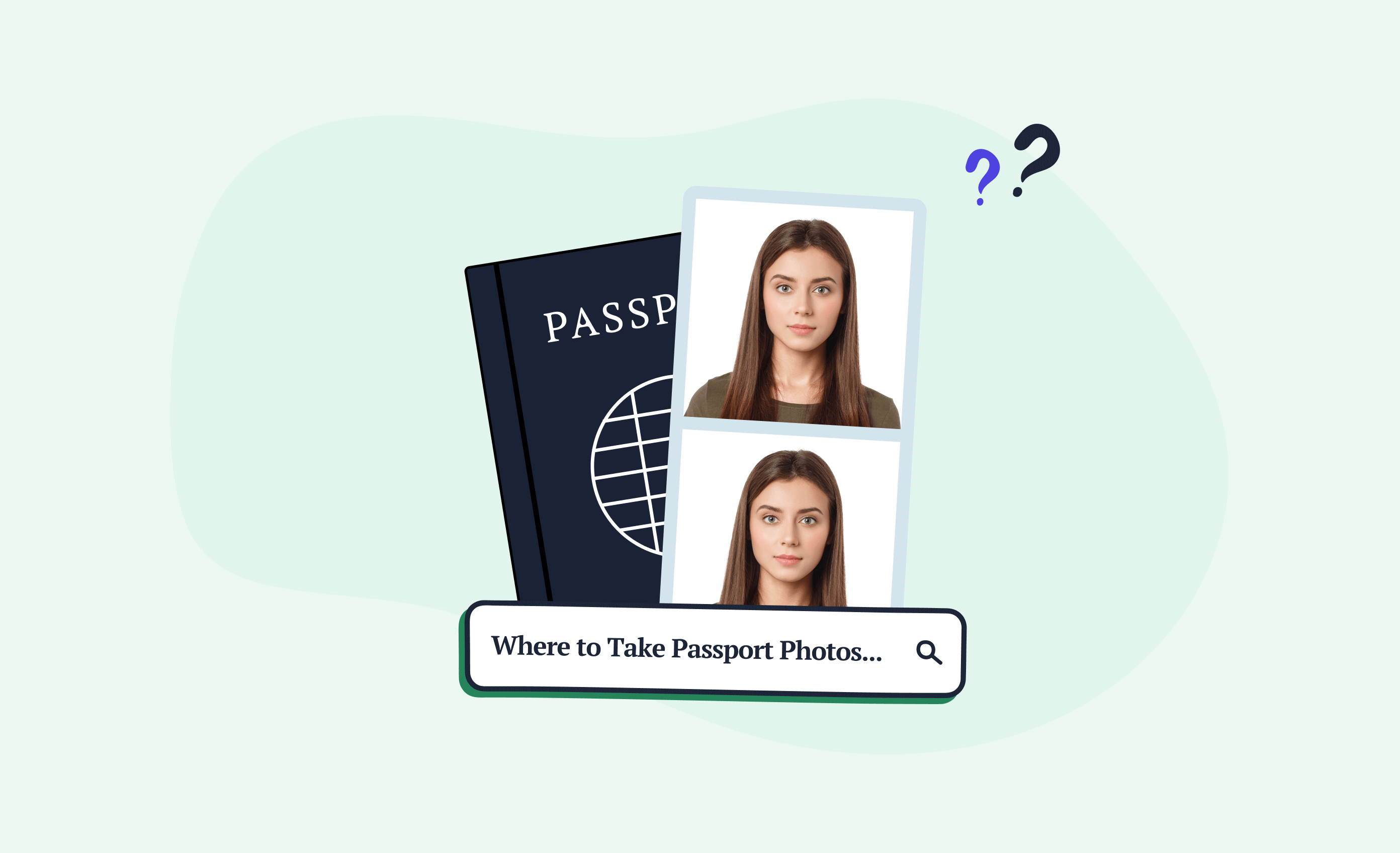Family travel can be richly rewarding: when you travel to other cities, other states and even other countries with your kids, you’re creating memories that will last for lifetimes.
But family travel can also be logistically very challenging: booking flights, hotels and excursions. Packing the right clothes. Making sure you haven’t forgotten anyone’s medications or lost someone’s passport. The bigger your family, the bigger your challenges.
The parents of special needs children have some extra challenges. They may need to pack additional medical equipment, like a wheelchair. It can also be difficult to get a passport for an autistic child.
Turn a selfie into a compliant passport photo with help from Passport Photo Online.
- Take a selfie or upload a photo.
- Passport Photo Online’s AI checker will improve it.
- Our compliance experts will double-check the results.
- Download your digital copy or order prints. That’s it!


Download a digital passport photo – compliant with US passport photo requirements. Have prints delivered to your address with a single click.
Verified by experts, 100% approval rate
Get accepted or 2x your money back
High-quality passport photos in just 3 clicks
10,000,000 satisfied customers to date!
I used Passport Photo Online and got a verified, compliant digital passport photo from a simple selfie. The whole process took about five minutes. The prints arrived just a few days later. I saved time and money and my passport application was accepted!
Does your child need a passport?
If you are planning to travel outside the U.S, then yes. Every American citizen regardless of age is required to present a US passport when returning to the country by air.
Exceptions can be made for children under the age of 16 if they are returning from a “closed loop” cruise within the Western Hemisphere Travel Initiative (WHTI) zone.
This zone includes Canada, Mexico, Bermuda and the Caribbean islands. If you are on a WHTI cruise, then children under 16 only need proof of citizenship, such as a US birth certificate or naturalization certificate.
But a passport is strongly recommended. It is the only travel document universally accepted. It combines proof of citizenship with a government-issued photo ID.
Interested in finding out more about passports? Check out:
- Passport for an Adopted Child [Required Documents, Fees, How to Sign & More]
- Do You Need a New Passport When You Turn 16 [+ What to Do to Renew It]
- How to Apply for a Newborn Passport in Texas [Process, Application & Tips]
- How to Track Passport Application Status [All Stages Explained]
- Passport Photo Rejected [7 Common Reasons & Next Steps]
- Paperwork Needed for Passport: Checklist
- Can You Get a Passport With a Bench Warrant?
How to get a passport
FoFor your child’s first passport, they must present themselves in person at a passport office with their paperwork and photographs. In other words, the parents have to organize a family trip to the nearest main post office, because this cannot be done online or through the mail.
Typically most postal passport offices are only open Monday through Friday, but some are also open on Saturdays. In the past, you got there as early as you could and got in line and waited patiently. It took forever.
Nowadays, however, due to the COVID-19 coronavirus pandemic, most post offices work by appointment only, and I think this is better. You can probably make the appointment online. Be aware that their calendar may be full far into the future.
Your post office may or may not make special accommodations for a special needs child. This is entirely up to the location and the people who work there. They must at a minimum fulfill the federal government requirements (for example, the building will be accessible to the mobility impaired), but they do not have to go “above and beyond” to provide excellent customer service.
If possible, talk to them in advance and explain your needs; they might be willing to make some concessions to help you out. But ultimately it is up to you, the customer, to have everything prepared in advance in order to make your time at the passport office go as smoothly as possible..
What you need to bring to the interview
So you made an appointment online, and finally the day of the interview has arrived. What do you need to take with you? Here are the standard items, which everyone needs to bring:
- Your child, prepped and ready, and excited to be a part of this job.
- Both parents (or legal guardians). If the other parent or legal guardian is unable to attend, they will need to fill out a Statement of Consent (form DS-3053) and have it notarized.
- The passport application form, completed but not signed.
- Your child’s birth certificate (either the original or a certified copy) or naturalization papers.
- A high-quality photocopy (front and back) of the birth certificate (or naturalization certificate).
- Your checkbook, to pay the state department fees and the application acceptance fee.
- Two identical color photographs of your child which meet the rigorous state department standards and specifications.
The parents of special needs children must bring additional things, too. Not because they are required, but just because they are a good idea. Here are a few suggestions:
- Additional support personnel such as your spouse, your child’s big brother or big sister, the grandparents, your best friend—anyone who can help out with things like running errands, babysitting for bathroom breaks, and doing any heavy lifting that might be required. Depending on where your child is on the spectrum, you may need more or less help. Just remember that this is a team effort, so bring your “A” team.
- As the parent of a special needs child, you probably already have a well-equipped field bag for going out with your child. Be sure to bring it! Make sure it is topped off with all your usual supplies: medications, wet-wipe napkins, small toys and whatever else your child needs.
- Don’t forget food and water. This could take a while, and you or your child (or other members of the team) might get thirsty. Or hungry. Come prepared with bottled water and favorite snacks. I don’t have to tell you to keep the snacks of the dry and non-crumbly type so that cleanup is easy.
- Bring any emotional support toys such as stuffed plush animals. When I was a kid, mine was a lion.
- But mostly, bring your strategic reserves of patience and strength. This could take a while. You will be dealing with civil servants. There will be a lot of other people running around and causing who knows what degree of chaos and confusion.
At the interview
A civil servant will review the application for completeness and correctness. Agents will examine your child’s birth certificate and return it to you. They will make sure the photocopy is readable, which they will send on to the Department of State. They will examine the photographs to ensure that they meet State Department rules, and this is where a lot of applications go off the rails.
The government is very picky about the exact size and style of their passport pictures. If the pictures you provide do not meet their specifications, they will not accept your application. You can get the picture retaken at the post office for a small $15 photo fee, but you can imagine the headache that will be.
You could try to beg, cajole or sweet-talk the agent into accepting your application anyway, but that’s an even worse idea: you’ll pay your fees ($145, minimum) and have your application sent on to the State Department, and then the Department of State will turn you down based on unacceptable photographs. And the government does not give refunds.
It’s up to you as the customer to provide acceptable, high-quality passport photos with your application. You might want to consider booking a professional photographer; alternately, there are some online passport photo services which I’ll talk about later.
If the agent likes your pictures, your application, your documents and photocopies, then they will witness your signatures. Ideally, the applicant should sign their own documents, but that is not always possible with autistic people. Very young children, too, cannot sign their own documents.
If your child is under 16, you can sign for them. If your child is 16 or over and can’t sign their forms, please bring a note from their doctor explaining that it’s not possible, and you can still sign for them.
Finally, you pay the post office’s application acceptance fee (for collecting the form) and hand over a check or money order made payable to the US Department of State to pay the State Department fees. The agent will send everything to the State Department, and your child’s passport will be mailed to your home in about six to eight weeks.
Taking the passport picture
One way to make your life just a little bit easier is to take your child’s passport photo at home, using your smartphone. Shooting in the privacy of your own home is a great way to get any child to feel comfortable and at ease, whether they are on the autism spectrum or not. Avoiding anxiety is the KEY, and the home environment is often the easiest way to do this.
Daylight is the best light for photography.
If you’re shooting indoors, try to shoot on a sunny day. Pose your child facing a window, so that the light is even upon their face. They can have their back near the wall, and they can be standing or sitting, it doesn’t matter which. Hold the camera at their eye level about six feet from the tip of their nose. Do not use the zoom! And do not use the fill flash, which can cause the “red-eye” effect, and red eyes will get the picture denied.
If you’re shooting outside, try to shoot on overcast days because the light is very diffuse. Either way, you have to watch out for shadows.In the actual finished photo, your child has to appear in front of a plain, uniform white background. You may not have such a background available to you. Don’t worry about that for now. Pose your child against any background, indoors or out. Concentrate on getting the best picture you can, and let us worry about the background.
In the picture, your child must be standing up as straight as possible, head not tilted to any angle, and looking directly into the camera. With autistic children, this can be the biggest challenge of the entire process. And this is where you might need some help from your team.
One of your most important team members has three legs. Use a tripod to hold the camera and keep it ready for action.
You may need another parent to hold the child until the actual moment of snapping the photo; just remember that no one else can be visible in the finished photo.
If your child wears glasses, they must take them off for the picture because any glare or shadows caused by the lenses and frames will disqualify the photo. You might need some grandparents to direct the kid’s attention towards the camera, or you can use a brightly-colored object to get their eyes to the right place.
The correct expression is very important. In addition to having the eyes open, the mouth must be closed. Smiling is not permitted. Passport pictures look like mugshots. This makes it easy for most people, but your autistic child might have a hard time controlling the expression on their face.
If you have to take a hundred and eleven pictures to get the perfect passport photo, please feel free to do so. Digital photographs don’t cost anything.
Passport Photo Online
Then, visit Passport Photo Online or download the app. Drag and drop your photo into the app, and our powerful AI will analyze it and let you know if it is suitable for passport purposes.
Once we’ve got a good and acceptable picture, we will automatically center it up and resize it to meet the official Department of State passport photo requirements.
Best of all, we digitally remove the background and replace it with a plain white background! We turn your regular photographs into US State Department-approved passport photos in seconds.
The service is fast, and it is affordable. For a few bucks we email you a JPEG file of your photo, which you can download and print out at the local drugstore. For a few dollars more we can ship properly printed paper passport photos ready to attach to your passport application right away.
We guarantee your passport photo will meet government approval. If you get turned down by the passport agency, we will fix the problem and return your money.
Enjoy the voyage!
There are so many destinations to visit with your kids: national parks, theme parks and beach resorts are fun for the whole family. But it’s a wide world, and every member of your family will need a passport before they can go beyond the border. You’re not going to let the fact that your child has special needs slow them down. Life is a trip. Enjoy the voyage.
FAQ
My child is legally blind and wears dark glasses. Can he wear his glasses in the picture?
Can we bring a beloved family pet into the post office with us?
Our child’s head is stabilized by a support built into his wheelchair is this acceptable?

Karolina’s passion for law, technology and photography led her to PhotoAiD S.A., where for the past 3 years she has been an expert in the implementation of passport photo compliance procedures in +80 countries around the world.













